Chris Rufo has gotten into a disagreement with Jordan Peterson, someone he considers “the most famous academic dissident in the world.”
Peterson’s criticism is that Rufo is violating the sacred separation between “politics and education”:
“The danger is that the political starts to explicitly permeate the educational.” — Peterson
Like Rufo, I find Peterson’s criticism to be laughable. Rufo is correct to cite Aristotle when he says that “public universities are inherently political institutions.” And yet, Rufo falls short of fulfilling the classical requirements for genuine politics.
Rufo states:
“Public universities are the creation of the state—that is, they belong to and should reflect the values of the public.
But what exactly are these values? Is it Catholicism, the faith of Rufo’s family? Is it discouraging women from education? Is it interracial marriage to an undocumented immigrant? This is not a rhetorical question. If we are to base our entire academic and political system on “our values,” we should be able to explicitly and simply state what those values are. What are Rufo’s “values of the public”?
the new southern strategy.
One interpretation is that Rufo is engaging in an updated version of the Southern Strategy employed by Goldwater and Nixon. On the one hand, Rufo’s attacks on liberalism, affirmative action, and DEI are direct appeals to whites, who increasingly feel that their identity is under attack. On the other hand, Rufo, like Goldwater and Nixon, feels uncomfortable with a full throated defense of whites as a collective with interests. Similar to his colleague JD Vance, he most likely feels that explicit white identity is threatening to his multi-racial family.
This results in a subtle dance back and forth, where white identity is hinted at, via negativa, but never embraced, via positiva. I assume that the majority of Rufo’s audience are not secret white nationalists. But there might be a percentage of white nationalists who cheer him on from the sidelines, seeing him as part of a process of mainstreaming white nationalism. This minority group believes that he “serves as a possible entry point” into white identity politics. At the same time, other white nationalists critique conservatives like Rufo as “grifters and opportunists” who dog-whistle, but never go “all the way.”
Rufo, like Tucker, Kirk, and Shapiro pride themselves on being anti-anti-white. “We’re hated by both sides — Nazis and woke alike — so we must be doing something right!” They imagine that, as sensible centrist classical liberals, they have reached the Aristotelian Golden Mean of politics.
But if Rufo doesn’t stand for white identity, I ask again, what are these “our values” that Rufo claims to espouse?
In Florida, voters elect their representatives, who, in turn, charter, fund, and govern the public universities. The takeover of New College was, in this manner, an expression of the democratic will, moving the public university in line with the wishes of the public.”
A majority of Florida voters oppose a 6 week abortion ban. Will New College incorporate those values into its curriculum? If not, I assume it is because Rufo has genuine conservative commitments. He is not just interested in following the will of the voters, wherever it may take him. I assume that he genuinely stands for certain beliefs, and would like the voters to follow him, rather than the other way around.
Besides promoting the flavor of the month served up by public opinion polls, does Rufo have any values besides “the will of the people”? Let’s read the mission statement for New College:
“Free speech, open debate, colorblind equality—all oriented to the pursuit of the highest good. [..] Students of any background can participate in the great tradition of the West. [..] While others are caught in the fray of ideology, we look up: to the true, the good, and the beautiful.”
The phrase “true, good, and beautiful” is a clear reference to Plato. Plato had a clear program for creating the ideal society:
Separate society into three castes;
Selectively breed humans according to their function;
Treat women as a form of collective state property to safeguard and exploit their breeding capacity;
Construct new myths and “noble lies” to force the ruling class into a vow of poverty, preventing them from indulging in degenerative excesses;
Limit their diet to the consumption of bland meats to keep them strong and tough.
I won’t accuse Rufo of advocating any of this, but I mention it only to provide a stark contrast to Rufo’s sentiments:
Anyone can say anything, I guess;
Anyone can be part of Western Civilization™. You don’t need any heritage or specific beliefs or anything, it’s just a big party at the shopping mall.
One rule: you cannot get “caught in the fray of ideology.” No ideologues here.
Despite my disagreement with Peterson on the role of politics in education, he is making a very logical argument when he accuses Rufo of betraying his very own mission statement. Isn’t it a contradiction to attack “the fray of ideology” in your mission statement, and then claim that you are defending “our values?”
What is the difference between values, ideologies, religions, politics, and morality, other than semantics? “We accept all religions, ideologies, and ethnicities, but we also support our unique Western values.” What sort of tautological newspeak is this? Am I talking to a communist, or a conservative?
rufo’s OnlyFans.
Is Chris Rufo running an OnlyFans? I don’t ask just because he’s devilishly handsome. Although in fairness to Chris, I’m sure he could make it to the top 1% of performers, if he wanted to.
But no, Chris Rufo isn’t that kind of lewd performer. His career is centered on political pornography. Let me explain.
When a man signs up for OnlyFans, he is looking for sex or companionship. He pays performers a certain amount of money, and in exchange, he is allowed access to various degrees of titillation. These can range from custom pictures, to videos, to text conversations, to video chats and more.
Andrew Tate supposedly became rich by engaging in “catfish” text conversations with Romanian women as the bait. Tate pretended to be a woman, impersonating the cam-models he hired, and sexted with male victims on their behalf.
Sex sells, but to various degrees. Some people want something full, hardcore, and explicit. Others prefer a “tease.” This is why I call Rufo tasteful. He is not like Alex Jones, whose political pornography involves yelling, screaming, and crying. Instead, Rufo is suave, sophisticated, and educated. He flirts, but never reveals it all. Classy!
Men who pay money for OnlyFans are following a deep ancestral need for sex and reproduction. Yet no matter how much money you spend on OnlyFans, you will never be any closer to sex (unless you cross the legal line into prostitution). OnlyFans spending might even negatively correlate with fertility. At the very least, it would be foolish to argue that, “the more you spend on OnlyFans, the more children, sex, and companionship you will achieve.”
And yet, at a deep subconscious level, the reason why men spend so much on OnlyFans is because they are desperate for sex, companionship, or (at the deepest, primordial level of sex) reproduction. For men with social anxiety or deep seated misogyny, OnlyFans is the best they can get. They feel like they don’t have another option.
You can watch sports all day, and never become athletic. You can watch porn, and never have sex. You can consume political news, and never become powerful.
But I’m not accusing Rufo of producing meaningless political content. Unlike many political commentators, Rufo has had an effect on the real world. He isn’t just a “radio jockey” like Alex Jones or Glenn Beck. He is an intellectual, a statesman, and a policy maker.
But what animates conservatives, railing against DEI? My opinion on this subject is leftist: I believe that, deep down, conservatives against DEI are motivated by implicit white racism. Now, when I say that, I am going to turn a lot of Rufo’s fans off, and they won’t listen to what I have to say. “Ah, here the left goes again, calling us names and slurs like racist!” If you’ll hear me out, I will try to explain my position.
racial pornography.
Deep down, conservatives are desperate for a form of identity. Mainline Protestantism is aging out of existence, and the white supremacist foundation of the Republic has been thrown in the trash. Without race or religion, people are lost with nowhere to go. I would argue that the left, as flawed as it is, is the only side willing to make a positive attempt to give America a new religion. The right, for its part, is preoccupied with “teasing” or (in the case of Alex Jones) grifting off an increasingly confused, conspiratorial, and angry group of “left behind” Americans.
For most white Americans with racial anxieties, Rufo is the best they can get. Although I find myself on the left, I think Rufo is a much better choice, at least from an aesthetic standpoint, than Glenn Beck or Alex Jones. I don’t think I would be able to have a conversation with either of those two, but Rufo seems intelligent and civil.
To take the metaphor further, this is what the average Rufo fan is secretly looking for, whether he knows it or not:
Charles Lindbergh was an open and proud white supremacist, who believed in the superiority of the Nordic race and eugenics. He wasn’t teasing, flirting, or flashing. And unlike Alex Jones, he didn’t need to dress up his ideology with ranting, raving, or jumping up and down. He had a set of genuine beliefs which needed no deception or exaggeration.
Lindbergh’s ideas were defeated in WWII, and they are no longer acceptable in any corner of American society. Whiteness became the villain, and Christianity has alternated between capitulating to liberalism and descending into snake-handling theatrics. America is left with liberalism as the dominant religion.
And yet, for millions of white American men, this is a deeply unsatisfying religion. They do not find it to be deep and compelling. Instead, they feel that it is unfair, grotesque, and evil. They find themselves at the bottom of a dark well, looking up.
From such a desperate and nihilistic position, most people are willing to cling to any hope. Along comes Chris Rufo. He does not offer white identity, but he offers a wink and a nudge and a pat on the back.
I do not think Rufo is a secret white supremacist. But his audience, his admirers, are deeply dissatisfied with the state of racial identity in America, not just negatively, but in a positive sense. They are not just upset that “Enrique and Jamal” have their own racial identity, but they secretly are jealous and want one for themselves. Unfortunately, no matter how much they support Rufo, they will never achieve it.
But what does Rufo actually believe?
Since Rufo is not motivated by his racial identity, I assume he has some religious convictions undergirding his conservative ideology. Consider his interview with Bishop Barron, where he says this about BLM:
“It’s an explicitly atheist ideology... They don’t appeal to the American Founding. They don’t appeal to any religious tradition. And I encourage people to look at the old pictures from the 1960s civil rights marches—it’s people of a variety of racial backgrounds, dressed in their Sunday best, with nice hand-painted signs. It’s optimistic, hopeful, faithful. The speeches appeal to our best instincts and our best moments as a country. They were led by Southern Baptist preachers and the African-American churches. These are respectful, middle-class people who are demanding recognition of their individual dignity.
Compare this to the images of the crowds in 2020. It’s people who, very frankly, are deranged, unwell, nihilistic. If you look at the slogans on the walls, it’s a very different tenor and vocabulary. It’s people who are masked and looking for destruction. If you look at the mugshots in Portland, Oregon, for example, it’s people who have nothing of the quality, even visually, as those civil rights marches of the past. Beneath the veneer of “civil rights,” it was an atheistic, nihilistic, neo-Marxist ideology that sought to level all the structures of society.”
There are three takeaways from this:
“I support Civil Rights, but it has to be done Christian-ly and aesthetically pleasing!1
“Return to the founding fathers!”
“We need a religious tradition.”
Let’s take the first point, which seems to be about optics. I profoundly disagree with Rufo’s characterization of Civil Rights in comparison to BLM. I think he is taking the best of Civil Rights (MLK) and comparing it with the worst of BLM. In other words, he is mystifying and sanctifying the mythology of Civil Rights, while at the same time demonizing and vilifying DEI.
In fact, most proponents of DEI at a corporate level are mild mannered bureaucrats like Khalilah Lyons. They are not rioting or looting. If optics is the issue, the era of Civil Rights had much worse optics than the era of DEI.
what did Civil Rights look like?
Let’s take a look at the actual aesthetic of Civil Rights:
I sincerely hope these people aren’t wearing their Sunday best. If so, I would not describe them as middle class.
Did BLM go back with a time machine to create this scene?
Where are the nice hand-painted signs? Is that guy in the back even wearing a shirt?
Does this picture just scream “optimistic, hopeful, faithful”? Are these “our best instincts and our best moments as a country”?
I don’t want to pick on black people. Let’s check out the whites:
Here’s white teenagers being forced to integrate. Many of these teens would jeer at the soldiers, calling them communists and race traitors.
One of the girls is smirking, while the other looks with disdain, as they are forced at knife point to go to school with black kids.
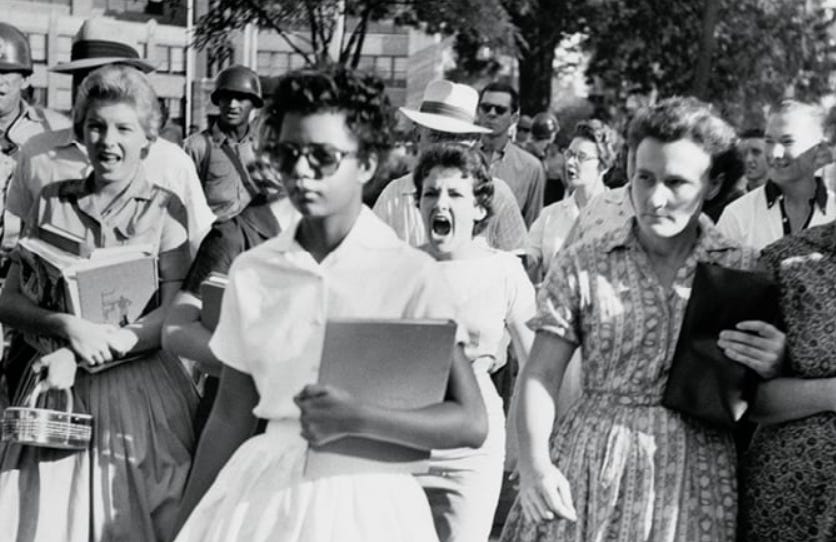
I could post a million of these pictures of these painful memories, but I know many conservatives would prefer to stick their heads back in the sand. The conservative slogan is “see no evil, do no evil! I don’t see color, so I can’t be racist!”
Maybe these are all cherry-picked photos, and the American people were, on average, happy about Civil Rights. The voting data says otherwise. Wallace’s third party revolt in 1968 was the most disruptive political event of the 21st century. He was projected to do even better in 1972, until he was crippled for life by an assassination attempt. His injuries left him with lifelong pain, and he was never the same. It was a violent and painful end to an ugly chapter of American history.
the founders and Reaganomics.
Rufo engages in what I call “conservative revisionism.” This is a very long tradition, beginning with Goldwater and Nixon, where America’s Founders are reimagined as Catholic advocates for Civil Rights. Dinesh D’Souza is one of the most brazen of these revisionists, and he demands that we recognize that “Democrats are the party of slavery.” I acknowledge that Democrats were the party of slavery, and I also recognize that our Founding Fathers were slave owners.
If we are to return to the Founders, as Rufo suggests, we must ask very honestly, “What were the values of the Founding Fathers?” Did they approve of interracial marriage and Vatican influence? If not, then we are clearly not “returning the Founders” as a guiding light, but merely using the Founders as cheap props to reinforce mere economic dogmas like “free markets.” Perhaps the Founders would have liked Ronald Reagan’s tax policy, but economic policy cannot encompass the fundamental values of a state.
Before I go too far in attacking Reaganomics as shallow and empty, I would like to be fair minded and point out that the left is also full of desperate people latching onto dead ideas like “communism.” Who are Vaush and Hasan, if not also political pornographers for a largely male-attracted audience?
Rufo’s audience of white men yearning for an implicit white identity is certainly no more embarrassing than Vaush’s league of furries and zoophiles. When those are placed as the only two choices, left vs right, I understand why some feel compelled to side with Rufo. But even if one side is deeply flawed, that does not place the other above criticism.
efficiency and mythology.
I don’t know Chris Rufo personally. Although I suspect his audience is driven by white racial anxiety, I will not ascribe those motivations to him as an individual. Instead, I will attempt to take him at his word:
“During the 1970s and 1980s, conservative intellectuals started a revolution, pioneering free-market economics and successfully implementing those ideas during the Reagan boom. Today, however, we are faced with a new challenge: to defeat an ascendant activist class that has sabotaged America’s institutions with a toxic combination of socialist economics, cultural chaos, and identity politics.”
What does this boil down to?
A commitment to low taxes and high GDP growth;
A rejection of any sort of ethnic identity at the heart of America.
I want to be charitable here on the subject of economics, which I am sure will irk my more socialist readers. I’m not going to argue over the efficiency of the free market. I’m not going to complain about Reagan’s massive government spending, or his amnesty to illegals. When I do this, I’m aware some readers might accuse me of being too charitable, but my intention isn’t to let Reagan off scot-free, but to focus exclusively on the question of identity.
With that being said, let’s say Rufo is right. Let’s say that Reaganomics are truly the holy grail of all economic theories, and they will provide us with maximal economic growth. If that is true, an America under Rufo-nomics will become extremely rich and wealthy. But is that sufficient?
the machiavellian critique.
In the days of Machiavelli, the Italian cities of Florence, Vienna, Siena, Milan, Genoa, Pisa, and Naples were fantastically rich. And yet Machiavelli complained that “this barbarous dominion stinks.” Despite Italy’s great wealth and human capital, he declared that Italy was:
“more enslaved than the Hebrews, more oppressed than the Persians, more scattered than the Athenians; without head, without order, beaten, despoiled, torn, overrun… this springs entirely from the insufficiency of the leaders.”
Machiavelli, like Rufo, felt that his society was falling apart. Yet objectively, Renaissance Italy was one of the richest societies in human history, up until that point. If we want to understand Machiavelli’s distress, we must turn away from the objective question of economics, and toward the spiritual question of identity.
One of the reasons why Machiavelli has been so maligned (his name has become a slur) is because he was an early opponent of the Catholic church: “Italy, through the Roman Church… has been ruined.”2
Italy never became home to a large Protestant movement, although I would argue that Machiavelli represents a strain of “Proto-Freemasonry” which directly influenced the Founding Fathers of America.
Neo-Classical architecture is a direct nod to the love of the Romans which Machiavelli espoused. It was Machiavelli, first and foremost, who revived Aristotle’s concept of the “three forms of government,” and advocated that they be mixed together as “three branches of government.” In my opinion, Machiavelli is the Proto-Founder of America.3
Machiavelli’s defense of secular Republics was born out of a deep distrust of the Catholic Church. During his life, the church was so often embroiled in scandals that, if there was not a scandal already afoot, people became suspicious that they were missing something.
Popes had children; Popes waged war and murdered their opposition; Popes took bribes (indulgences) and allied with criminals against the people. This behavior directly inspired Luther, Calvin, and Henry VIII to throw off the Catholic yoke.4
Just a decade before the Protestant Revolution broke out, Machiavelli praised, as Tacitus before him, the moral spirit of the German people:
In Germany, however, we do see signal excellence and a devout religious spirit prevail among the people, giving rise to the many free states which there maintain themselves, with such strict observance of their laws that none, either within or without their walls, dare encroach on them… Honesty and religion still prevail among this people.5
This coming Protestant Revolution was predicted by Machiavelli early on. Despite his hatred of Catholicism, the decline of religiousness also deeply disturbed him. He was a believer in the necessity of religion. In his Discourses on Livy, he writes that religion is the essential bedrock of a state. When irreligiousness rises, the state is unable to withstand crisis. There are only two forces, in Machiavelli’s view, which can sustain a state:
A religion worth dying for;
National patriotism.
what is a nation?
Machiavelli writes that, “it is a great reproach to a prince or to a commonwealth to be without a national army.” What does Machiavelli mean by national? What is a nation?
Machiavelli believes that national unity is the foundation of military victory:
To ensure an army is victorious in battle you must inspire it with the conviction that it is certain to prevail. The causes which give it this confidence are its being well armed and disciplined, and the soldiers knowing one another. These conditions are only to be found united in soldiers born and bred in the same country.6
It is difficult to project “racism” back upon Machiavelli, and understanding Machiavelli’s point is not an endorsement of xenophobia. Machiavelli cites many explicitly multi-ethnic states, such as Sparta, as models. But he makes it clear that, notwithstanding the working or economic classes, the leadership and warrior class of a state must be national in character.
“The same nation long retains the same customs.”7 The word custom would be equivalent to our modern conception of culture: “As good customs stand in need of good laws for their support, so laws, that they may be respected, stand in need of good customs.”8
Machiavelli warns what happens when a nation lose its customs (culture):
“Etruria… was at one time powerful, abounding in piety and valor, practicing her own customs, and speaking her own tongue; but all this was effaced by the power of Rome, so that, as I have observed already, nothing is left of her but the memory of a name.”9
If that is not dramatic enough, consider this prophetic statement:
“Changes in sects and tongues… obliterate the memory of the past.”10
I am simply going to quote Machiavelli at length, because the relevance to the present day is astonishing:
“When a new sect, that is to say a new religion, comes up, its first endeavor, in order to give itself reputation, is to efface the old... This we know from observing the methods which Christianity has followed in dealing with the religion of the Gentiles, for we find that it has abolished all the rites and ordinances of that worship, and obliterated every trace of the ancient belief. True, it has not succeeded in utterly blotting out our knowledge of things done by the famous men who held that belief... For anyone who reads of the methods followed by Saint Gregory and the other heads of the Christian religion, will perceive with what animosity they pursued all ancient memorials; burning the works of poets and historians; breaking images; and destroying whatsoever else afforded any trace of antiquity… everything was forgotten.”11
Any conservative who reads this passage will immediately think of BLM and the left, and rightly so. I acknowledge that the left has led the charge to take down the statues of General Lee in Charlottesville, Virginia, and attack the Founding Fathers as dead white men. Yet curiously, even though conservatives can clearly see the iconoclasm of the left, they neglect to examine their own crucial participation in this process. The left is the wrecking ball, and conservatives are the clean-up crew.
Whereas the left acknowledges the pain, suffering, and violence of the Civil Rights movement, it is conservatives who seek to blot out our history and replace it with a new myth, where Civil Rights featured “our best moments as a country.” This conservative myth, sadly, is not like Plato’s. It is not even like Marx’s. It offers no utopia, no grand vision, no distinct creed, no doctrine of heaven and hell. The conservative myth has nothing but GDP.
I agree, as would Machiavelli, that the wealth of nations is important and should not be neglected. If free market economics is the key to a good economy, then it can be considered a necessary element of a good state. Necessary, but not sufficient. A state cannot survive crisis, plague, famine, or flood with “GDP” alone.
Rufo may protest that he is trying to revive the Founding myth through compromise with the left, but Machiavelli would term this “religion corrupted.”12 Machiavelli’s praise of both Christianity and paganism reflects Revelation 3:15-16:
So then because thou art lukewarm, and neither cold nor hot, I will spue thee out of my mouth.
Machiavelli’s assessment is that a true religion, uncompromising and pure, will uphold the state. But to degrade and criticize, aiming at moderation and compromise, threatens the foundations of the state. Only fanaticism, ultimately, can uphold a state, and only the state can safeguard liberty. Men are not willing to die for GDP, and it is only by the cry “liberty or death!” that liberty is maintained.
It is fair to criticize “wokism” as a fanaticism without wisdom. But, like the French Revolution, or the Bolshevik Revolution, or the Revolution of Caesar, I believe its current form is transitional. Augustus, Napoleon, and Stalin may come to secure the fruits of this revolution and set it on the proper course. But that will not happen through conservative methods.
playing with fire.
“The miracles celebrated even in false religions have come to be held in repute; for from whatever source they spring, discreet men will extol them, whose authority afterwards gives them currency everywhere.” — Machiavelli, Discourses, Chapter XII.
It is not clear to me whether Rufo seeks to reinforce the myth of Civil Rights, or to tear it down. He compares it favorably with BLM. Is this an attempt to praise it? Or a 4D chess strategy, where first we destroy DEI, and then we come for Civil Rights? It has been a year since Rufo’s interview with Bishop Barron, so maybe his thoughts on this matter are still in flux. He may wish to publicly clarify his position, or perhaps he prefers ambiguity in this matter.
I will consider the possibility that Rufo’s positive characterization of Civil Rights (“respectful, middle-class people who are demanding recognition of their individual dignity”) is a part of a clever plot to undermine Civil Rights. I am open to being corrected in this matter, but let us explore this assumption.
Should we tear down Civil Rights with clever rhetoric? Is this wise? And what authority or religion will replace it?
“Observances of religion must be accompanied by valor, for otherwise they can nothing avail.” — Machiavelli, Discourses, XXXIII.
I would be more trusting of a plot to “replace America’s civic religion” from an open Theocratic Monarchist, or a Freemasonic White Supremacist. Those were genuine (if evil or false) paradigms, which served as the basis for historical empires. If Rufo truly wishes to return us to the American Founding, we must re-embrace the White Nationalism upon which this country was founded.
I make this point, not to deport myself to Israel, but to expose the cowardliness of shallow conservatism. It is the same sort of cowardliness that embraces “going back to the Bible,” but cherry-picks verses, and avoids the ugly ones about genocide and sexism. Rufo wants to revive religion in a general and vague sense, but he has difficulty in boldly telling us what that religion is. Is it Catholic theocracy? Or is it 1950s liberalism? Rufo claims he wants Civil Rights, but with “nice hand-painted signs,” not with “masks and mugshots.” He wants to go back to the Founders, but he cannot honestly tell us what the Founders thought about race.
These deep and obvious contradictions could either result from internal struggle, ignorance, or an intention to deceive. I hope Rufo is not deceptive; I do not think he is truly ignorant; and so I wonder if he is genuinely confused. Many Americans struggle internally with questions of race and religion.
“Will my neighbors go to hell? The Bible says so, but I like my neighbors…”
“I’m not racist, but…”
I’ve spoken with an elderly Marxist professor, who participated in marches for equality, who found himself in later years opposed to mass immigration. I’ve spoken, on the other hand, with white nationalists who fell in love with non-whites, and find themselves torn between romantic and ideological commitments. Life is not as simple as we wish it to be.
Whatever his motives, Rufo’s conservatism is part of a larger intellectual movement to call out “anti-white bias” without promoting anything substantive to replace it. There is no return to Christianity coming, and White Supremacy is long gone. Merely chipping away at the edifice of “DEI” and returning to Reaganomics are not going to solve the crisis of authority in this country.
Compact Mag, Sohrab Ahmari's conservative outlet, said of the recent riots in Britain that the “reason is that much of Britain is poor.” Apparently, it just needs more GDP: “Above all, Britain needs economic growth. Getting rich may not salve all wounds, but it heals many of them.”
I will not entirely discount the idea that slow economic growth can sometimes exacerbate social conflict. But I am unconvinced that January 6th or the riots in Britain were caused by low GDP alone. In fact, the lead up to January 6th saw one of the quickest economic recoveries in history. While economics can sometimes help us understand the timing or triggering of social decay, it cannot explain the roots of a decay of religion, like the fall of paganism or Christianity. It cannot explain changing views of race.
rufo and russia.
Conservatives like to paint leftists with a broad brush, accusing them of all of the crimes of a minority. “Rioters! Criminals! Murderers! Rapists! Traitors!” says Trump, almost on a daily basis. It has become a matter of course in politics to accuse one another of “guilt by association.” This is generally not a very strong argument when speaking purely of ideas.
But I would genuinely ask Mr. Rufo, as an American, to deeply examine the company he keeps, in light of recent revelations. I make this point not to blame Rufo for the actions of others, but to give him an opportunity to reflect on the ultimate direction of his political coalition. It’s never too late to re-assess and make new choices. I am a proponent of second chances and changes of heart.
Who has an interest in promoting Rufo’s brand of conservatism in America? Let's look at who praises Rufo:
Steve Bannon is a convicted criminal who defrauded his own supporters to “privately fund the border wall.” Ben Shapiro is currently defending his network from accusations of foreign influence. Carlson’s worship of Russian bread prices was so over-the-top that it even embarrassed Russian agents. Tim Pool’s current defense of his behavior is that “I knew not what I did!”13 Benny Johnson and Dave Rubin, both allies of Rufo, now claim that they are “victims” in a Russian influence plot.
I believe that everyone is entitled to a presumption of innocence rather than a presumption of guilt. I am hopeful that, when federal investigations bring all of the facts and evidence to light, those who Rufo highlights as his greatest supporters will be fully exonerated as mere patsies or "useful idiots" of the Kremlin, rather than active and knowing traitors.
Still, if you are concerned at all about Russian influence (and I am), then you should ask yourself why it is that Russia finds itself so supportive of Rufo’s coterie. That should give us all pause. This is not to say that every American who criticizes DEI is a Russian agent, but that we should ask why Russia is such a strong supporter of “anti-anti-whiteness.”
catholic theocracy.
Political Catholicism is unusually strong in America. Six of our nine supreme court Justices are Catholic. Every single conservative member of the court is Catholic: Roberts, Thomas, Alito, Gorsuch, Kavanaugh, and Barrett. With JD Vance converting to Catholicism (but allowing his wife the feminist freedom to remain Hindu), it seems there’s a chance that America might have a third Catholic president in 2028. But unlike JFK or Biden, this would be America’s first conservative Catholic.
How is this, statistically speaking, possible? How many of these conservative Catholics are there?
White Catholics are only 13% of the population, and 57% of them vote Republican as of 2020. That’s 7.4% of the country, but 56% of our Supreme Court Justices.
As someone with Jewish heritage, I want to be cautious and sensitive in asking these sorts of questions. I’m not suggesting that we ban Catholics from politics. I believe in religious freedom. People have the right to attend church, receive sacraments, pray, and read the Bible. But I also believe that our religious views deeply impact our politics, and the two cannot be entirely separated.
What is it about political Catholicism that makes it so influential, as opposed to the religion of the Founders? Protestant, Freemasonic, Deist, Congregationalist, Episcopalian, and Presbyterian: why are those faiths almost absent from the conservative “ruling class,” when they have a much more authentic tie to the unique customs and traditions of America’s founding stock? How does political Catholicism differ from America’s historic Protestant tradition?
Calvinism, as noted by Curtis Yarvin, is essentially the birthplace of liberalism. As a leftist, I think this is a good thing. Calvinists questioned the monarchy and aristocracy, and dreamed of a state where all men were created politically and theologically equal, rather than defined by an ancient genealogy or priestly hierarchy. In Calvinist America, every man is a priest, and every man is a king.
By contrast, the Vatican is essentially an oligarchy. There are a very small number of Cardinals who control billions of dollars of wealth, even though supposedly Catholic countries like Brazil, Mexico, and the Philippines are filled with trash and poverty. This is extremely similar to how Russia is run: a small oligarchy controls all the wealth, and the people live in relatively depressing conditions.
Let’s imagine that there is a small but highly dedicated group of American Catholics who seek to overturn America’s civic religion in favor of Catholic Theocracy. If they exist, then most Americans have never heard of them. I doubt that Chris Rufo is one of them. Still, would these hypothetical Catholic Theocrats have any qualms about allying with Russian? Do they prefer Vladimir Putin to Kamala Harris?
When we put the question that way, conservatives are quick to say, “no! I have nothing to do with Putin!” And yet, the propaganda on social media says the opposite: “Putin is based! America needs a strong leader, like Putin!” Which one is it? Answer clearly.
hyenas vs the lion.
I would be more sympathetic to attempts to overthrow the American civil religion if the plan to replace it had any serious chance of succeeding. Instead, what I see is a bunch of hyenas ganging up on an injured lion.
None of the hyenas alone has the ability to reign as king of the jungle. But together, they bite the ankles of the king, weakening him. Their goal is a “multi-polar order,” where each hyena gets his own kingdom. In other words, total global anarchy, the destruction of the global trade system, and the return of piracy. Imagine the cartels of Mexico, but in every country around the world.
The alternative is that we tear these hyenas away from the king, and restore his strength to fight again. Caesar, Napoleon, and Stalin all represent this kind of king. But none of them were conservatives. Caesar allied with immigrants and foreigners; Napoleon rose up from the ranks of the revolutionary army; and Stalin sought a war of expansion into Europe to spread communism.
Each of these men came to power through force. Politicians like DeSantis, agitators like Tucker, and operatives like Bannon lack the spirit necessary. It seems that no one in this generation is capable. But that is also in keeping with history.
Sulla's march on Rome occurred in 88 BC, while Augustus became the first emperor in 27 BC. Accordingly, it took 61 years from the first crisis of the Republic until the establishment of a stable empire. In 61 years, it will be 2085. What kind of technology will exist? What new opportunities will present themselves?
Russia, as a proxy of China, might succeed in degrading America, by promoting BLM, Catholic Theocrats, and isolationism. With these hyenas working together, America might exit NATO, close its overseas bases, and split apart into 50 parochial states with no international influence. The result would be either global anarchy, or Chinese hegemony (or a combination).14
This seems to be Rufo’s ambition. In his own words: “We need to break up all of the centralized institutions, return power back to states, localities, families.”
All centralized institutions? Does that include NATO? The FBI and CIA? The federal government? Our military? This isn’t a rhetorical question. This is conservative rhetoric:
"Break up the FBI," says the Washington Examiner.
“Time to Break up the FBI?” asks The American Conservative. That was a question amplified by the Catholic University of America.
“It’s Long Past Time For Congress To Break Up The FBI,” says The Federalist.
Vivek Ramaswamy promised to “break up the FBI.”
Victor Davis Hanson proclaimed that “The FBI Can't Continue.”
Tucker blamed the FBI for January 6th.
Ann Coulter: “It’s time to disband the FBI.”
These statements have a real-world impact. According to Fox News, public confidence in the FBI has decreased from 80% in 2017 to 59%, mostly among Republicans.
Does Russia have any interest in these narratives?
I’m willing to give Rufo the benefit of the doubt, and allow for the chance that I am misinterpreting him. But the fact that he leaves his sympathies open to interpretation is concerning. I await his clarification.
Thanks for reading.
If you made it this far, I congratulate you for taking the time to consider my arguments carefully. Most people are only interested in assessing, “red tribe or blue tribe? Wrong tribe? Time to distort, attack, strawman!” That certainly feels good to “attack the bad tribe,” but it’s not how we learn, reach consensus, or save our country. Since you are such a careful reader, I would like to offer you the good reader discount. If you cannot support my project financially, I would encourage you to like, comment, or re-stack this piece, as it helps spread the word. Thank you for your loyal readership, and do let me know what sort of articles you would like to see in the future.
I support Civil Rights, but LEGALLY!
Chapter XII, Discourses.
Rufo and Italians everywhere: rejoice!
There is evidence that the Pope, at this time, was a mere pawn of the Habsburgs, rather than anything sovereign or spiritual.
Chapter LV, Discourses.
XXXIII, Discourses.
XLIII, Discourses.
XVIII, Discourses.
V, Discourses.
V, Discourses.
V, Discourses.
X, Discourses.
Tim Pool’s interview with Rufo, from October 30, 2020, is now unlisted, likely due to Tim’s cooperation with the FBI. Here’s the IMDB link. I will note here that the government has a history of offering plea deals to cooperative witnesses. It’s entirely possible that Tim Pool is guilty of crimes, but has taken a deal with the FBI, and thus will not be charged. It’s impossible to know either way.




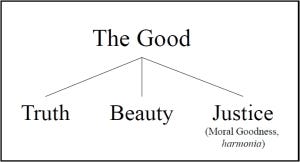
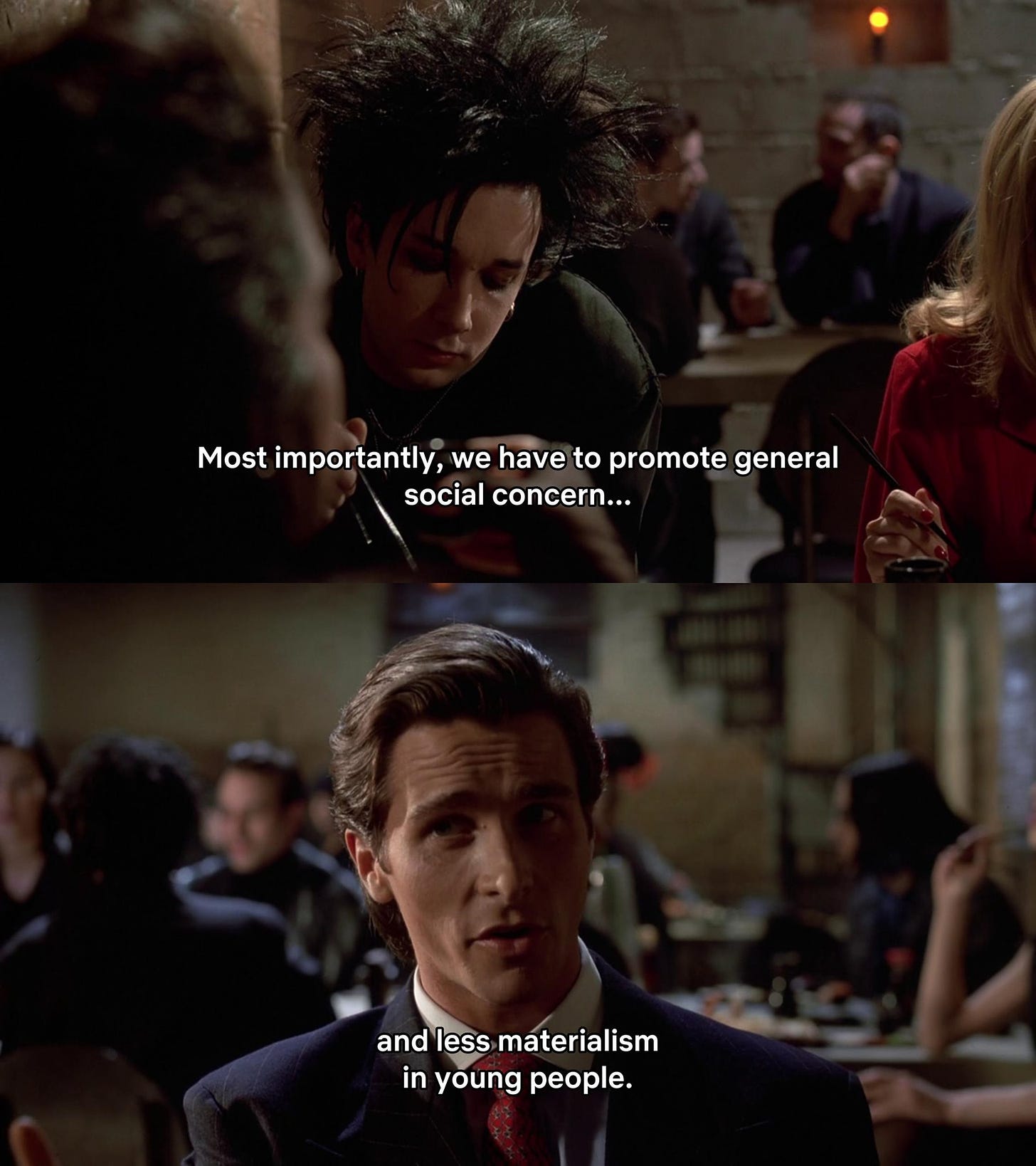



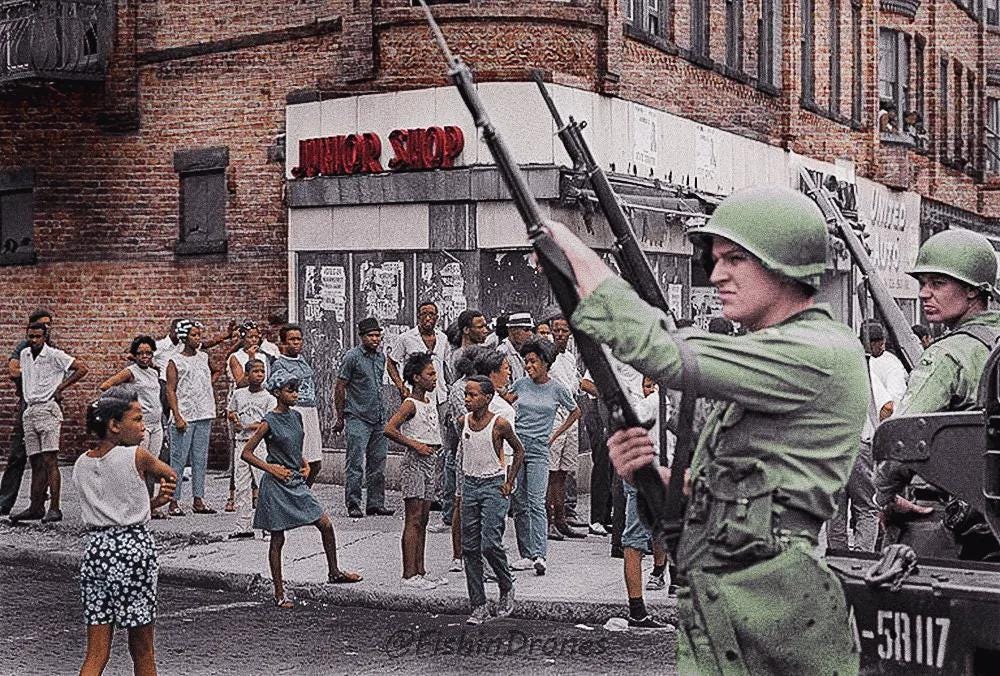
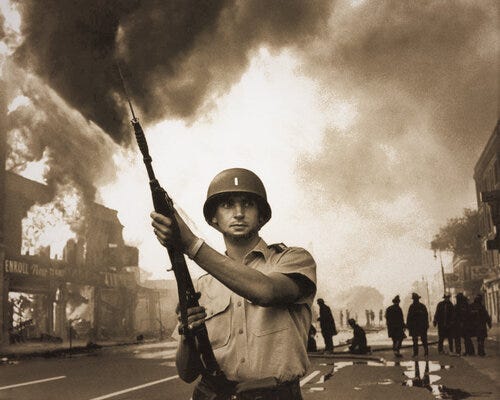
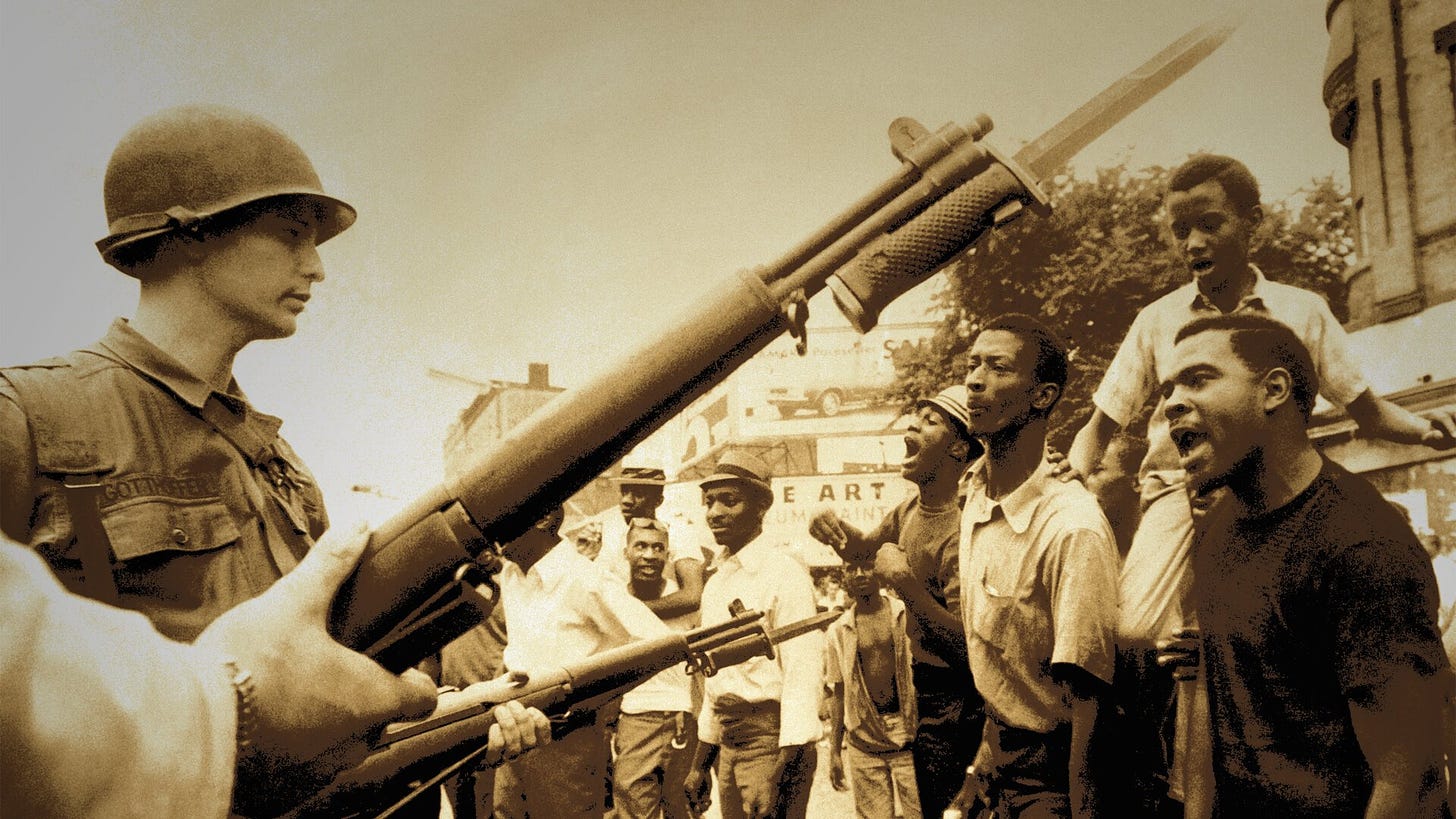
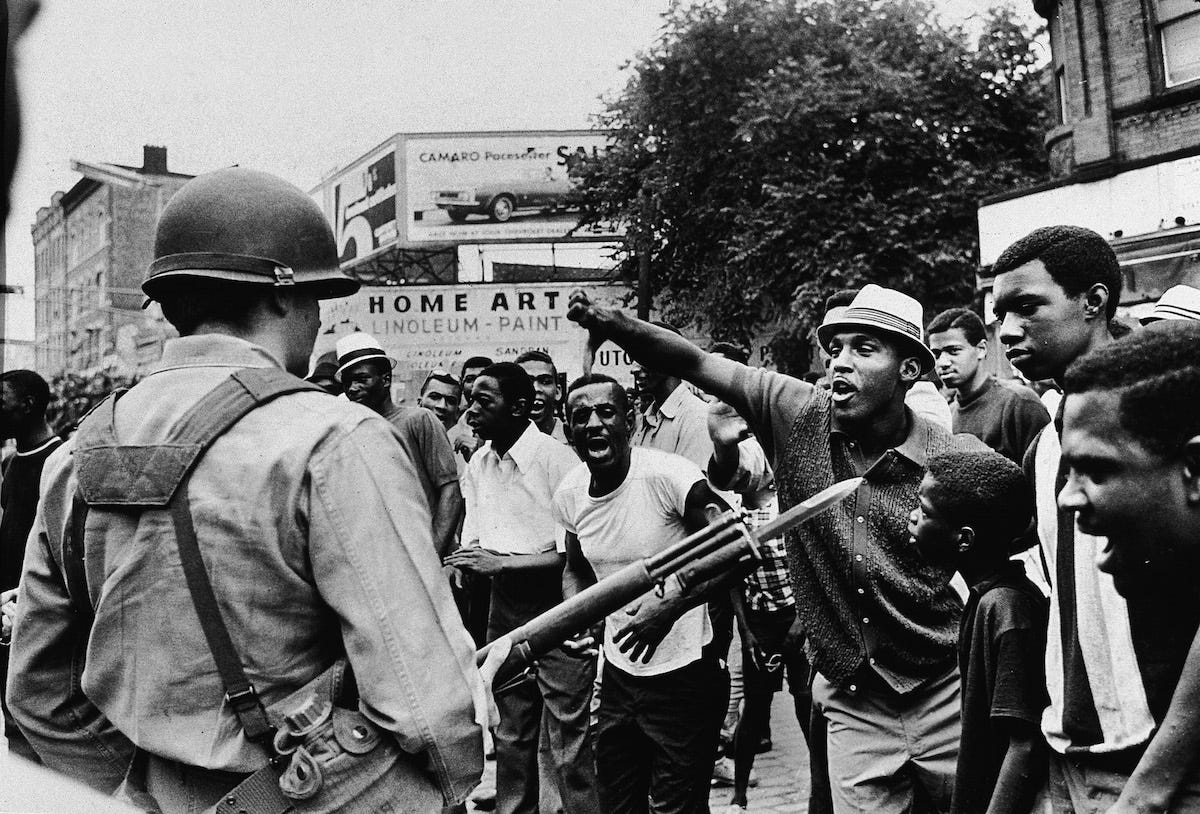

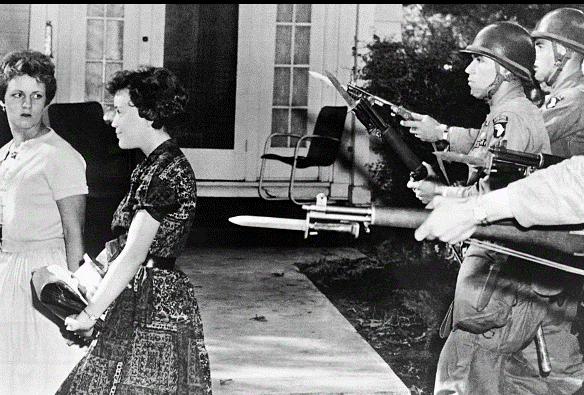
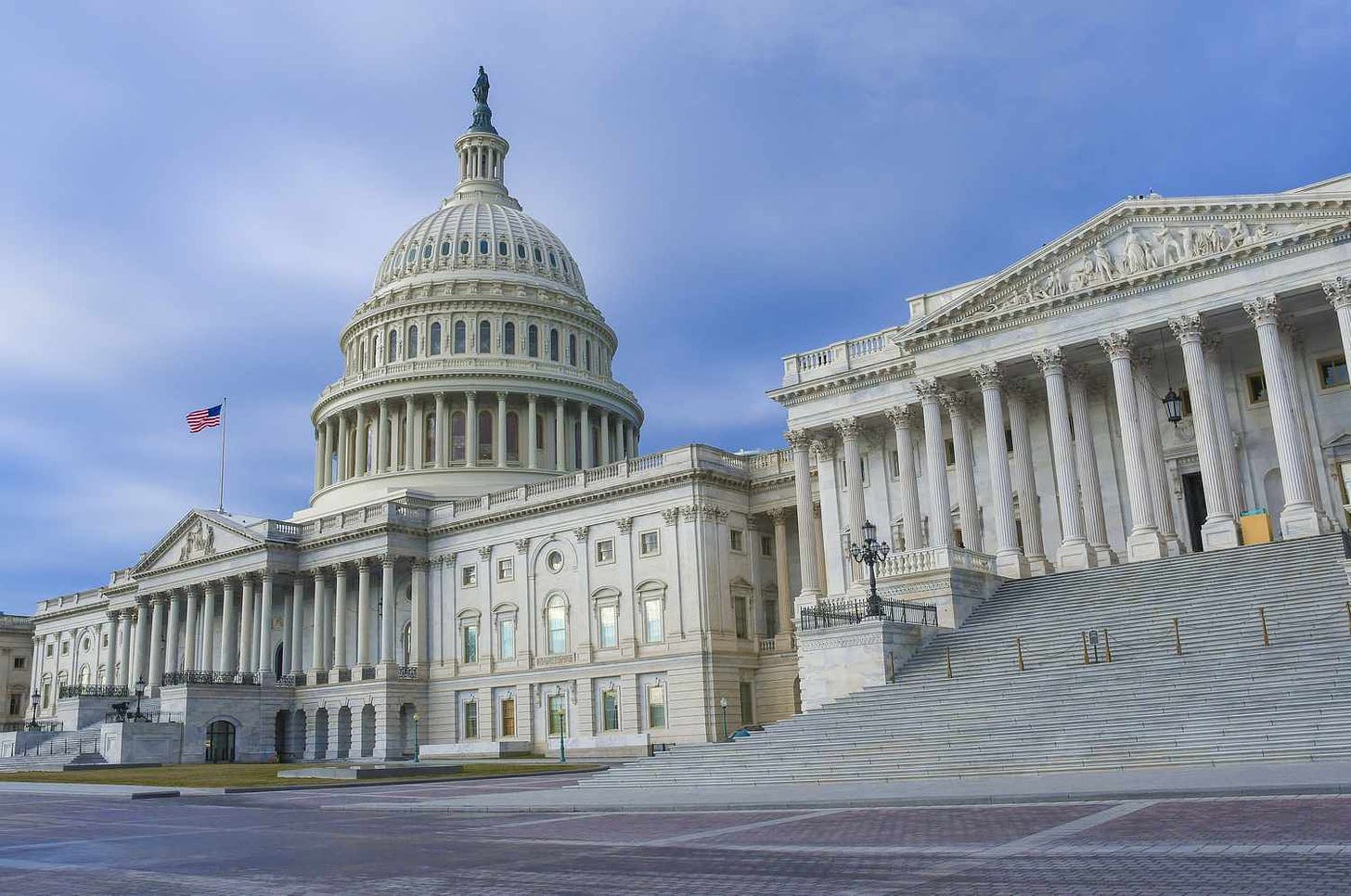
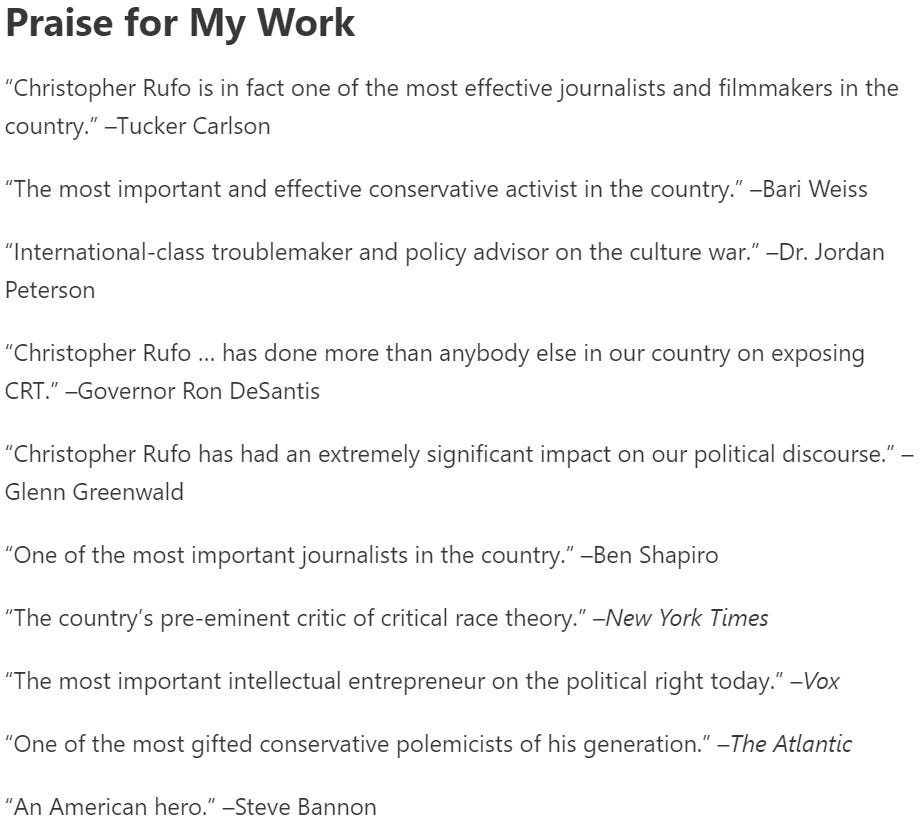


I think of identity politics like nuclear weapons. It would be great to live in a world without identity politics but once one tribe votes as a bloc or gets special privileges because of their identity, all of the other tribes will rush to do the same. No one “disarms” because everyone is trapped in a prisoner’s dilemma and nobody wants to be on the only team dumb enough to detribalize while everyone else is running the tables.
I agree that white identity is probably behind a lot of the enthusiasm for Rufo’s ideas but I think it’s more of the “I’m sick of being demonized” variety as opposed to the “I hate everyone who doesn’t look like me” type.
I like your stuff and I don’t even mind the stream of consciousness aspect but these essays need more structure!